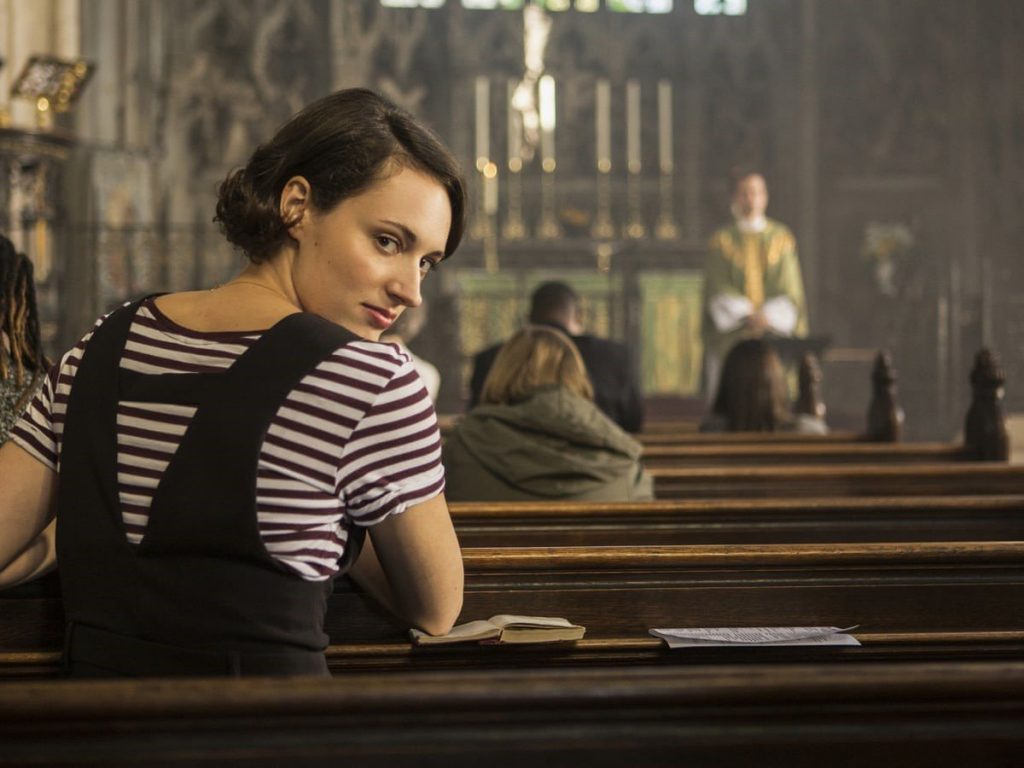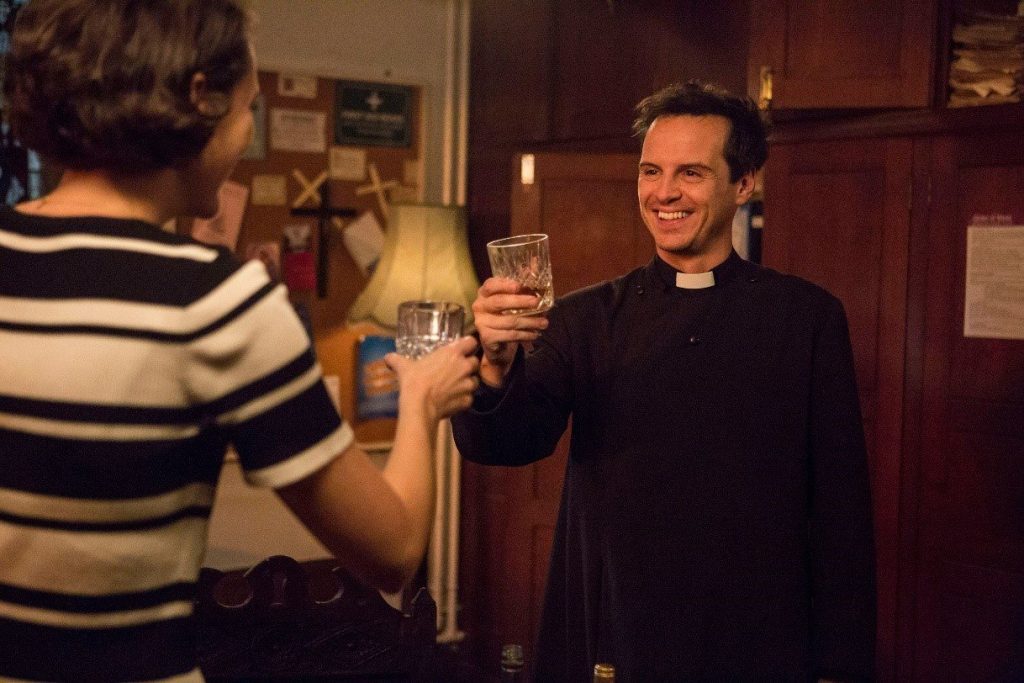This comedy-drama created by and featuring the ever-talented, prolific Phoebe Waller-Bridge revolves around a flawed young woman, who is imperfect. But it is in her flaws, that one finds comfort. An exemplary blend of clever, dark humor and emotional stimulation.
Overview
Fleabag is a British comedy-drama series that is based on Phoebe Waller-Bridge’s playwright under the same name that was performed back in 2013. The show premiered in 2016 and has won a prolific number of awards since then, including at the Emmy Awards 2019 for ‘Outstanding Comedy Series’. In short, the show can be defined as a ferocious feminist comedy (disclaimer: with graphic, NSFW scenes).
The sitcom follows the story of a thirty-year-old single woman, Fleabag (Phoebe Waller-Bridge), who is grappling with the loss of her best friend, Boo, and a difficult family. (The name is never actually uttered in the show, it’s safe to assume it may be a nickname referring to the protagonist). She finds solace in her dead best friend’s pet hamster, who is always there to give her company as she runs her little café in London, one that’s barely visited by customers. A conspicuous coping mechanism she employs is not only her dark sense of humour, but humour at awfully inappropriate times. She’s jaunty, outrageously confident (at least, at surface level), but lacks a verbal filter.

Within the first few minutes of episode one itself, the protagonist has established herself as a woman who is fiercely in control of her own life. She does what she likes, gets sexually involved with whomever she wishes to – and she’s unapologetic. If you’ve watched The Office, the camerawork follows a similar style with Fleabag turning to the camera intermittently with her snide remarks as if voicing her thoughts. This smart technique effortlessly makes the viewer feel like her best friend, whom she confides in. Fleabag is narrated entirely from the protagonist’s point of view, as she navigates her life amidst the shallow relationship she shares with her stepmother, and meaningless sexual encounters to overcome a glaring void.
Her self-loathing nature and misery perhaps come from the fact that her stepmother is manipulative, her father and she simply don’t know how to communicate since her mother’s death, and that she’s always shared an uncomfortable relationship with her sister, Claire (Sian Clifford) – one devoid of affection. We see an exhibit of this in a scene where she’s so immensely taken aback by her sister trying to hug her, that she reflexively smacks her in the face.
In the second season, imagine her fate- that the one time that Fleabag finds herself getting emotionally attached to a man, he turns out to be a priest (Andrew Scott). And even worse, a hot priest. Their indisputable chemistry brings about a tragic ending and it is in this season, that we’re hit in the face with a vortex of emotions. The painful, yet visceral feelings that Fleabag faces concerning not just her relationship with the priest, but also the blossoming of the same with her sister, progress with her father; and most of all, herself, compels you to feel. And I did. I would hate to give away any spoilers, but in general – the second season aims to tap into themes of forgiveness, understanding and growth.

Characters
One of the most notable supporting characters we see is Claire, played fantastically by Sian Clifford, who’s no-nonsense, uptight and starkly opposite to her sister – in that she’s as reserved as it gets, uneasy about sharing virtually any information about her personal life. It’s interesting to see the relationship between her and Fleabag evolve over time. Claire is certain that her sister will manage to mess things up almost at almost every opportunity she gets and will strive to be a public embarrassment (unfortunately for Fleabag, she does), but there are moments in the show where they realise they’re an inalienable part of each other’s’ lives, and that in the end they’re all they’ve got. Claire finds herself in a toxic marriage with a man she resents but frees herself of it in season 2.
Fleabag’s brother in law (and Claire’s husband) is an ego-maniacal, creepy douche named Martin (Brett Gelman), who even forcefully tries to kiss Fleabag at her sister’s birthday party. We also see the insanely talented, and renowned actress Olivia Coleman play the protagonist’s unempathetic stepmother, one who pretty much believes the worst in Fleabag – convinced that she’s good for nothing (except at stealing her sculpture). Bill Paterson plays the father who is rather emotionally stunted when it comes to his daughters and seems blissfully ignorant of the relationship they share with his wife.
Final Words
All in all, you have to yourself some quintessential, dry, British comedy that’s feminist in all its glory and interspersed with some heart-wrenching moments. The show’s final episode is devastatingly sad, but you feel like Fleabag finally relieved herself of the worthlessness she had felt all this while.
